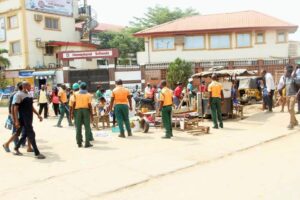LASG seeks integrated approach to transportation planning in Africa
Lagos State Government has advocated a comprehensive, sophisticated and more integrated approach to transport planning in Africa, to achieve efficient, equitable and environmentally sensitive system.
The State’s Commissioner for Transportation, Dr Frederic Oladeinde, made this known at the 6th Africa Sustainable Mobility Course in Lagos on Wednesday.
Oladeinde stated that an environmentally sensitive transport cannot be achieved simply by improving the efficiency of vehicle designs or traffic management.
According to him, it also requires changes in the way people think about transportation and how they identify and evaluate solutions to transport problems.
The course, organised by Ochenuel Mobility Nigeria and supported by LAMATA, had participants from Uganda, Liberia, Germany, South Africa, India, Malawi, Tanzania and Nigeria.
Delivering his keynote address, on the theme of the course, ‘Pathway to the Future Mobility of Africa,’ Oladeinde said for African transportation landscape to become sustainable, planning must focus on access.
“This can be improved with strategies that reduce the need to travel altogether, such as land management and improved communications.”
He noted that rapid urbanisation of Africa in the past decades had resulted in complex social, economic and environmental challenges.
Oladeinde said this was with the auto-centric pattern of development resulting in traffic congestion, urban sprawl and pollution.
He said current approach to problem solving in the transport sector tended to fail when confronted with so many challenges and described conventional decision making as reductionist.
He said apart from lack of investments in infrastructure to meet the needs of the rapidly growing population, there is the urgent need to mainstream the prioritisation of public transport and non-motorized transport (NMT).
Besides, Oladeinde stated the need for a transition to cleaner or renewable energy sources to power Africa’s mobility space.
He described this as a critical component of the plan to reduce the negative environmental impacts of transportation and mobility.
“Compressed natural gas (CNG), hydroelectricity, biomass, geothermal energy, wind mapower, and solar energy are all eligible energy sources.
“Hybrid and electric vehicles (EVs) would assist to reduce pollution while also easing the burden of rising gasoline prices.
“Energy security is however a primary hurdle to electric car acceptability in Africa,” he said
In her welcome address, the Managing Director of Lagos Metropolitan Area Transport Authority (LAMATA), Mrs Abimbola Akinajo, shed light on the import of the course.
Akinajo said the course was to accommodate organisational capacity of the different executing MDAs, Local Government and Local Council development areas.
“It is also to coordinate their activities towards achieving a common and consistent policy basis for sustainable transport development in Lagos.
“There is a clear evidence that knowledge of sustainable urban mobility is limited in Africa, given the nature of contemporary urban transport developments,” she noted,
Akinajo pointed out that transport development in Africa essentially focusses on building wider roads that promotes motorisation.
This, she said, ultimately increases traffic congestion and greenhouse gas (GHG) emissions.




